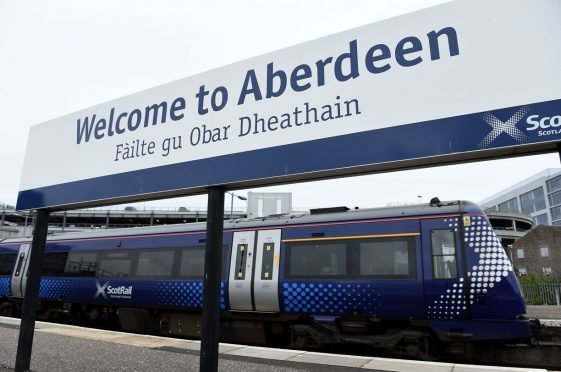The Scottish Government is being urged to amend controversial legislation requiring all local authorities to produce Gaelic language plans.
North-east conservative MSP Ross Thomson has tabled a parliamentary question calling for changes to the Gaelic Language (Scotland) Act 2005.
He wants the act to allow councils in areas with a low number of Gaelic speakers to opt out.
Despite only 0.8% of people in Aberdeen speaking the language, the city Council voted overwhelmingly to implement a five-year plan.
It will involve changing local authority vehicle liveries, creating a bilingual council logo and including translations on some signs around the city.
Some councillors claim it will cost “millions”.
The council’s approval came with a Liberal Democrat amendment which called for a delay to its execution while clarity was sought from the Scottish Government.
Last night Mr Thomson said: “I do not think it is as appropriate in Aberdeen, for example, as it is in the Western Isles, and the legislation should reflect that.
“Scottish cities like Aberdeen are multicultural and, with dozens of languages spoken. In some areas you could argue it would make more sense to have signs in Polish than in Gaelic.
“I hope that the Scottish Government will give this serious consideration.
“I believe the majority of the public would support more local control over these types of issues rather than sticking with the blanket, one-size-fits all approach that we see all too often from the SNP.”
But SNP finance spokesman at Aberdeen City Council, Graham Dickson, said that Mr Thomson’s comments were “dog whistle politics”.
He said: “I think if councillor Thomson was interesting in promoting Doric, for example, people might be more willing to take his proposal more seriously.”
A Scottish Government spokesman said: “The Gaelic (Scotland) Act was supported by all parties in the Scottish Parliament in 2005.
“Gaelic plans provide a way for authorities and public bodies to support the Gaelic language within their areas of responsibility in a proportionate way and reflecting local circumstances.
“Scottish Government funding is in place to support local authorities with the delivery of Gaelic education and Bord na Gaidhlig also has a fund with which it can support authorities and bodies with commitments in their Gaelic plans.”
